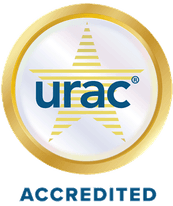Brand-Name vs. Generic Drugs: Understanding the Key Differences
Written by
SmithRx
Oct 8, 2024
Faced with a wall of over-the-counter medicines for the same symptoms, choosing can be overwhelming. Should you opt for the pricier, familiar brand name or the cost-effective generic? Before reaching for either, it's crucial to understand the key differences between these options. Let's explore the important distinctions that can help you make an informed decision for your health and wallet.
What Are the Differences Between Brand-Name and Generic Drugs?
Brand-name drugs are the first versions of a medication to be sold on the market. Generic drugs contain the same active ingredients as brand-name drugs and work in the same way. In order for the Food and Drug Administration (FDA) to approve a generic drug, the generic substitution must meet the same high-standard and also have the same strength, dosage form, and administration route (oral, topical, inhaled, etc). The primary differences between the two are in price, appearance, and inactive ingredients.
To help you understand, here are some examples of brand-name, over-the-counter (OTC) medicines and their generic counterparts:
Brand Name | Generic |
Advil, Motrin | Ibuprofen |
Robitussin | Dextromethorphan |
Tylenol | Acetaminophen |
Claritin | Loratadine |
Learn What Your PBM Isn’t Telling You—Free Download
How Do Prescription Drugs Compare to Generic Alternatives?
The same principles apply to prescription drugs. Take Lipitor, for instance, a well-known brand-name cholesterol medication. Its generic counterpart, atorvastatin, treats high cholesterol with equal effectiveness but at a significantly lower cost. It's important to note that all medications—whether generic or brand name, prescription or over-the-counter—undergo rigorous Food and Drug Administration (FDA) testing to ensure they are as safe and effective as their counterparts. The generic medication must also be manufactured under the same strict standards as the brand-name.
What Are Biosimilars, and How Do They Compare to Biologics?
Biosimilars can be thought of like generic drugs, but for medications known as biologics. Biologics come from living cells that have much larger and complex structure compared to a molecular drug. These are used to treat conditions like cancer and autoimmune diseases. While biosimilars are highly similar to their reference biologics, slight variations can occur because they're made from living cells. However, the FDA rigorously evaluates biosimilars to ensure they're just as safe and effective as the original or reference biologics.
What’s the Difference Between Prescription and Over-the-Counter (OTC) Medications?
Whether prescription or OTC, both brand-name and generic drugs must meet rigorous FDA safety and efficacy standards. However, OTC medications are generally those the FDA has determined can be safely used without a healthcare provider's prescription.
Do Generic and Brand-Name Drugs Work the Same?
Yes, generic drugs work the same as their brand-name equivalents. Similarly, biosimilars work the same way as their reference product. The FDA requires both generic, biosimilar,and brand-name drugs to be equally safe and effective. The FDA states that 9 out of 10 prescriptions filled are for generic drugs.
Below is a chart breaking down the difference between generic and name-brand drugs.

Why Are Generic Drugs Cheaper Than Brand-Name Drugs?
Generics are cheaper because manufacturers don't have to invest in the expensive research, development, and marketing costs that go into creating brand-name drugs. Additionally, when patents expire on brand-name drugs, multiple generic versions are often released simultaneously. This increased competition among generic manufacturers further drives down prices. These cost savings are passed on to consumers, which is why generic drugs are often much more affordable than their brand-name counterparts. The chart below illustrates just how significant the cost difference can be between common brand-name and generic prescription drugs.

Are All Brand-Name Drugs Available as Generics?
No, not all branded drugs have a generic equivalent or biosimilar. A branded drug is protected by a patent, and after the patent expires then other drug manufacturers can release the generic or biosimilar product. Not all patents have the same timeline so it can take some drugs longer to have the generic or biosimilar product available on the market.
How to Choose Between Brand-Name, Generic, and Biosimilar Drugs
In most cases, choosing the generic version or biosimilar is both cost-effective and safe. However, if you're unsure about which option is best for you, don't hesitate to consult your doctor or pharmacist for personalized recommendations. For SmithRx members, finding the most affordable option for any prescription is straightforward — simply use the SmithRx Member Portal to compare costs.

Written by
SmithRx
SmithRx is the #1 Modern PBM, relentlessly focused on eliminating the conflicts and complexity of legacy pharmacy benefits. Built on radical transparency and fiduciary alignment, we empower employers to take control of their pharmacy spend and experience with our 100% pass-through model.





